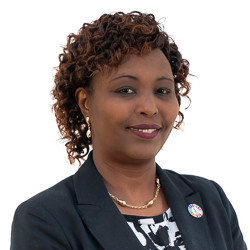Liberia
The Context
Liberia is a coastal state in West Africa, bordered to the east by Côte d’Ivoire. Despite significant improvements since the end of its civil war in 2003, it remains a fragile state with weak institutions, policies and governance.
The outbreak of Ebola virus disease during 2014 and 2015 compounded the challenges. Liberia is classified as a Least Developed Country and a Low-Income Food-Deficit Country, and relies heavily on foreign assistance.
Liberia has a young and growing population estimated at 4.6 million people as of 2016, growing at 2.6 per cent a year. In 2013, 42.9 per cent of Liberians were estimated to be under 14.
Poverty is widespread. An estimated 51 per cent of the population lives in rural areas where poverty is heavily concentrated. Many lack access to basic infrastructure and social services, and poor roads leave many areas inaccessible. Approximately 55 per cent of rural Liberian households are food insecure.
The economy depends heavily on exports of minerals. Agriculture provides the main livelihood for 48.9 per cent of the workforce, mainly in smallholder and subsistence farming. Plantations produce rubber, cocoa, coffee, palm oil and sugar cane. Liberia imports up to 60 per cent of its staple food.
Agriculture is central to Liberia’s vision of economic transformation. However, smallholder farmers are held back by lack of fertilizer and irrigation, poor seeds and breeding stock; and inadequate credit, machinery and infrastructure for transport, storage and marketing. Liberia also needs to develop a food processing industry.
The Strategy
IFAD resumed its activities in Liberia in 2009, after a 20-year suspension arising from the prolonged civil war.
In Liberia, IFAD loans are aim to empower poor rural people to durably improve their livelihoods and food security and livelihoods, primarily by increasing smallholder farmers’ access to inputs and technical training, and providing better seeds and livestock.
Our country strategic opportunities programme (COSOP) is under design, in partnership with the Ministries of Agriculture and Finance, and the Agriculture Donor Working Group. It will be fully aligned with the Comprehensive Africa Agriculture Development Programme and with national policies such as Liberia’s Agriculture Sector Investment Programme.
IFAD-supported projects help increase smallholders’ access to markets by:
- improving the quality of production;
- building roads that link farms to local markets;
- constructing storage and processing facilities; and
- providing marketing advisory services and facilitating links with exporters and well-established private companies through contract farming.
Results-based country strategic opportunities programme (COSOP):
Arabic | English | French | Spanish
Country Facts
Agriculture remains the primary source of income for two thirds of the country’s population, which was estimated at 4.3 million in 2013.
IFAD resumed its activities in Liberia in 2009, following a 20-year suspension arising from the prolonged civil war.
Since 1981, IFAD has invested a total of US$61.9 million in six projects and programmes in Liberia, benefiting 156,600 households.
